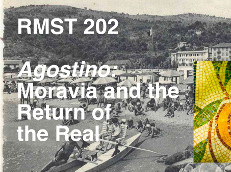Let me preface all this by saying that I did not understand what I was reading, and this was further emphasised to me when I read the sparknotes pages after finishing “Combray“.
I really wanted to fall in love with this text. In Search of Lost Time by Marcel Proust has an almost revered place in my home; my stepdad, who is at the beloved centre of our family first read Swann’s Way when he was my current age (20), albeit in the Persian translation. Since then, he has read it in English too, and is learning French for the sole purpose of being able to read all seven volumes of this masterful novel in the original language. I’m not kidding, Proust is the reason why he is learning French, and why the act of language-learning is a constant for us all.
I didn’t understand what was going on at all. I didn’t even realise that things were going on. I didn’t pick up a plot, I couldn’t follow the paragraph-long sentences—may I refer to a 192-word long sentence about buttercups—I was just lost. I remember asking my stepdad, who is a very intelligent man, if he understood what was going on when he was reading it for the first time at my age. He said that he didn’t, and that felt a little validating, to be honest.
Nonetheless, I did pick up a few small things. Now obviously, Marcel Proust and the narrator come from an affluent, upper-class background and, as with many writings from the early 20th century, there’s going to be some analysis about social class. I really liked the part of the story where he speculates about the appearance of the Duchess. He has all these theories and ideas about what she’s going to look like, before actually seeing her and being disappointed by her mundane-ness. She just looks like any other person in his social circle. She just looks like a person.
I’m sure that people have idolised the appearances of the upper class for many, many years. I think of European monarchs in the 1500s who would have portraits commissioned with their flaws concealed and their youth exaggerated, just to have the paintings taken around the country for their subjects to see what they supposedly looked like. I imagine there’s always been this notion that higher class automatically means more beauty, so it’s thought-provoking to see that notion shatter before the narrator’s eyes.
Also, I didn’t like that he pretends that Gilberte and the Duchess’ eyes are blue, just because he associates blue eyes with beauty. Sure, go on about beauty standards and all that but let it be known that I stand with my fellow brown-eyed people and would like to make it clear that brown eyes are also very beautiful and they deserve as much hype as blue eyes.
My question upon reading this part of the novel is that to what extent is the narrator’s relationship with each of his parents normal and/or healthy? Because I’m seeing some Oedipal subtexts and I can’t say I enjoy it.

